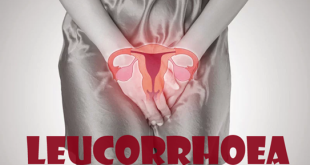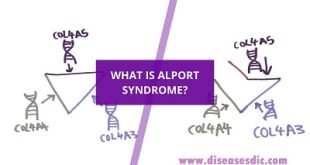Definition
Alcohol poisoning can occur when a person drinks large quantities of alcohol, including beer, wine, and liquor, in a relatively short time. As the amount of alcohol in the bloodstream increases, the liver can’t break down the alcohol and remove its toxins from the blood quickly enough.
The excess alcohol acts as a depressant and causes parts of the brain that control vital body functions–including breathing, heart rate, blood pressure, and temperature–to shut down. The blood alcohol content (BAC) can continue to rise 40 minutes after the last drink, as alcohol in the stomach and intestines continues to enter the bloodstream.
Prevalence of Alcohol poisoning
- Binge drinking is the most common cause of alcohol poisoning. This can occur in social settings or when a drinker consumes five or more alcoholic beverages alone.
- Alcohol is readily available in the United States for anyone over the age of 21, and drinking at social events is very common.
- Alcohol poisoning can occur whenever a person consumes more alcohol than his body can handle, though the actual amounts required vary greatly between individuals.
- Poisoning is far more common in situations where large quantities of alcohol are available or drinking is a major part of social activities, such as sports events or parties.
Alcohol poisoning causes
- Too much alcohol in your bloodstream causes the areas of your brain that support breathing, your heart rate, and other basic life-supporting functions to start to shut down.
- In other words, your friend who drank way too much, may not just be sleeping it off. If he is experiencing an episode of acute alcohol poisoning, drinking too much too quickly, his condition could lead to coma and even death if you do not intervene.
- Alcohol poisoning affects the brain, blood vessels, and liver. Rapid fluid ingestion alters the fluid concentration in your body, potentially disrupting your fluid and electrolyte balance.
- Children or adults can get alcohol poisoning. When it comes to kids, and maybe adults too, your thoughts might immediately jump to the liquor cabinet, but remember that another household product that contains alcohol, such as a cooking extract, or medicinal tincture, could be the culprit.
Risk factors
Age
Young adults are more likely to drink excessively, leading to an alcohol overdose.
Gender
Men are more likely than women to drink heavily, resulting in a greater risk for an alcohol overdose.
Body size
Your height and weight determine how quickly your body absorbs alcohol. Someone with a smaller body may experience the effects of alcohol more rapidly than someone with a larger body. In fact, the smaller-bodied person may experience an alcohol overdose after drinking the same amount that a larger-bodied person can consume safely.
Tolerance
Having a high tolerance for alcohol or drinking quickly (for example, by playing drinking games) can put you at increased risk for an alcohol overdose.
Binge drinking
People who binge drink (drink more than five drinks in an hour) are also at risk for alcohol overdose.
Other health conditions
If you have other health conditions, such as diabetes, you may be at greater risk of having an alcohol overdose.
Drug use
If you combine alcohol and drugs, you may not feel the effects of alcohol. This may cause you to drink more, increasing your risk for an alcohol overdose.
Symptoms of Alcohol poisoning
Know the symptoms are as follows:
- Confusion or disorientation
- Vomiting
- Hypothermia
- Inability to stay conscious
- Cold or clammy skin
- Lack of physical coordination, including an inability to walk
- Irregular pulse
- Depressed breathing
- Seizure
- Choking
- Loss of bowel or bladder control
- Blue-tinged skin, especially around the lips or under the fingernails
Alcohol poisoning complications
In more extreme cases, alcohol poisoning can be life-threatening. It can cause trouble, like:
- Choking on your own vomit
- Trouble breathing because of vomit that gets into the lungs
- Severe dehydration
- Brain damage
- Coma
Diagnosis and test
In addition to checking for visible signs and symptoms of alcohol poisoning, your doctor will likely order blood and urine tests to check blood alcohol levels and identify other signs of alcohol toxicity, such as low blood sugar.
Treatment
Anyone suffering from alcohol poisoning requires immediate medical attention. They are a danger to themselves and others, and without direct medical intervention, the damage to the person’s health is likely to be worse. Before diving into the proper treatment, it’s important to debunk some myths about how to help someone who is too drunk:
Sleep it Off- Blood alcohol level can continue to rise in someone’s sleep, but since they’re unconscious their condition is impossible to monitor.
Drink Coffee- Caffeine does nothing to counteract the effects of alcohol and may actually exacerbate the effects of alcohol poisoning.
Take a Cold Shower- Again, this does nothing to lower blood alcohol level, and the sudden change in temperature may actually induce shock.
Walk it Off- Exercise and activity do not make the body filter alcohol out of the bloodstream any faster.
The takeaway is that there is no home remedy for alcohol poisoning. As soon as the signs or symptoms are observed an ambulance should be called immediately. Engaging the authorities is always a big decision, but in this instance, it’s better to error on the side of caution. Take these actions while waiting for the ambulance to arrive.
- Keep the person with alcohol poisoning awake.
- Keep them sitting up rather than lying down. If they do become horizontal, move their head to the side to prevent choking on vomit.
- Encourage the person to drink water but do not force them to consume as much as possible.
- Never leave the person unattended.
- Get prepared to tell the emergency responders how much the person drank and any other medical information it may be important to know.
- Get the person with alcohol poisoning ready to go into the ambulance by gathering up their bag or coat.
After someone is admitted to the hospital it’s up to the doctors to decide what medical intervention to pursue. These are the most common treatments:
- Having a tube inserted down the windpipe to aid with breathing.
- Inserting an intravenous drip to provide nourishment and hydration.
- Inserting a urinary catheter if incontinence becomes an issue.
- Pumping the stomach to remove excess alcohol from the body.
- Performing dialysis to accelerate how quickly the kidneys remove toxins from the system.
Prevention of Alcohol poisoning
Perhaps the only good thing about alcohol poisoning is that it is 100% preventable. Taking the following steps will help avoid a dangerous situation from developing.
- Only drink in moderation, if at all. Have one drink at most per day, and ideally abstain.
- Drink slowly.
- Don’t drink on an empty stomach.
- Make sure to drink sufficient water.
- Store alcohol products carefully and out of the reach of children.
- Educate your family and friends (especially teens) about the dangers of alcohol poisoning.
 Diseases Treatments Dictionary This is complete solution to read all diseases treatments Which covers Prevention, Causes, Symptoms, Medical Terms, Drugs, Prescription, Natural Remedies with cures and Treatments. Most of the common diseases were listed in names, split with categories.
Diseases Treatments Dictionary This is complete solution to read all diseases treatments Which covers Prevention, Causes, Symptoms, Medical Terms, Drugs, Prescription, Natural Remedies with cures and Treatments. Most of the common diseases were listed in names, split with categories.








Please how can I help a person with a liver problem due to alcohol consumption.
Treatment for ARLD involves stopping drinking alcohol. This is known as abstinence, which can be vital, depending on what stage the condition is at. If you have fatty liver disease, the damage may be reversed if you abstain from alcohol for at least 2 weeks.
can alcohol trigger hiccups
There are two main reasons that drinking might cause hiccups, and they’re both connected to the way your body digests alcohol. If you’re drinking something carbonated, like beer or champagne, that carbonation will expand your stomach. … Your diaphragm can contract involuntarily — that’s a hiccup.
what’s nessery drug for acholic abusive
During the detox process, patients may receive medications to help them safely withdraw from alcohol. Some of these medications may include:
Benzodiazepines such as diazepam, chlordiazepoxide, oxazepam, or lorazepam
Anticonvulsants like carbamazepine, gabapentin, or topiramate
Antipsychotics like haloperidol